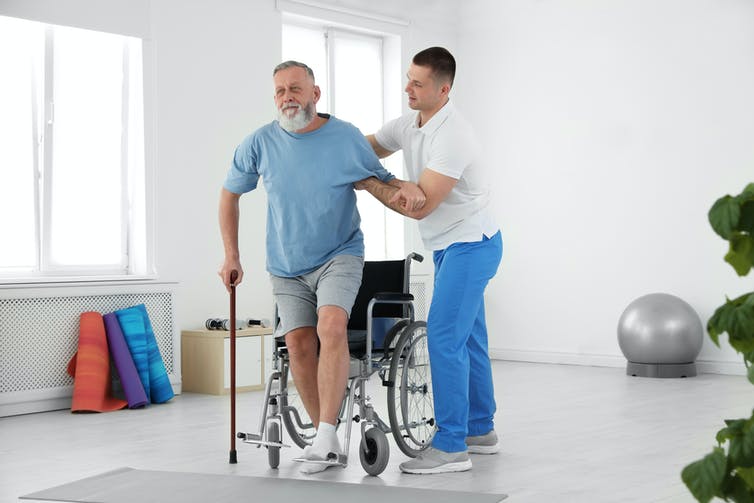
You probably don’t realise it when you’re listening to your favourite song, but music has an incredibly powerful effect on the human brain. Singing, playing an instrument or listening to music have all been shown to activate numerous areas of the brain that control speech, movement and cognition, memory and emotion – often all at the same time. Remarkably, research also suggests that music can physically increase brain matter, which could help the brain repair itself.
More intriguing is the impact that music can have even in cases where the brain may not be functioning as it should. For example, studies show that for people with Alzheimer’s, music can often spark a reaction, helping patients access memories that were previously lost. There’s also evidence of patients who have suffered brain damage and lost the ability to speak that can still sing when music is played.
Given the powerful effect that music has on the brain, researchers are investigating whether it can be used to treat many different neurological conditions – such as stroke, Parkinson’s disease or brain injury. One such treatment currently being investigated for use is neurologic music therapy.
Neurologic music therapy works a bit like physiotherapy or speech therapy, in that it aims to help patients manage symptoms and function better in their daily life. Therapy sessions use musical or rhythmical exercises to help patients regain functional skills. For example, patients relearning to walk after an accident or trauma might walk to the rhythm of music during a therapy session.
Talking, walking, thinking
So far, this type of therapy has shown promise in helping stroke survivors to recover language, improve walking and recover physical movement better than other standard therapies.
Researchers have also investigated whether neurologic music therapy can treat other movement disorders, such as Parkinson’s disease. Most studies in this area have used a technique called rhythmic entrainment exercises, which uses the brain’s ability to synchronise with a beat unconsciously – such as having to walk to a specific speed of music or beat.

New Africa/ Shutterstock
Compared to doing therapy without music, neurologic music therapy has been shown to improve walking and reduce moments of “freezing” (a temporary, involuntary inability to move) in Parkinson’s patients.
Studies have also investigated whether this type of therapy can treat cognitive issues in people who have suffered a traumatic brain injury or have Huntington’s disease. For these types of conditions, neurologic music therapy focuses on activating and stimulating areas of the brain which may have been damaged – such as the prefrontal cortex, an area of the brain responsible for planning, decision-making, problem solving and self control. This might involve the patient switching between playing two types of musical instruments when they hear a change in the music they’re playing along to (such as the tempo becoming faster or slower).
One research study found that these types of activities improved concentration and attention for patients with traumatic brain injury. This in turn had a positive impact on their wellbeing, and lowered feelings of depression or anxiety.
Music and the brain
It’s thought that the reason neurological music therapy works is because music can activate and simulate so many different parts of the brain simultaneously. For patients with neurological conditions, it’s often the connections in the brain that are causing problems, rather than a specific area itself.
Research shows that music can uniquely form new connections in the brain. Listening to music also improves neuron repair better than other activities – such as listening to an audiobook – which may mean the brain functions better and builds new connections.
Read more:
What is brain plasticity and why is it so important?
Music is believed to have long lasting effects on the brain, too. So much so that a musician’s brain is actually better connected than people who haven’t played music. This could be important for people with neurological conditions, as music could help to repair damaged connections over time.
This activation of multiple areas of the brain may be the reason why neurologic music therapy is more successful than other standard therapies alone. Given that many neurological conditions affect the connections in the brain, music’s ability to activate multiple areas simultaneously may help bypass these problem connections and build new ones – allowing people to overcome certain symptoms, or better manage them.
Though more research still needs to be done before neurological music therapy is used widely across healthcare systems, early results from studies show how much promise this therapy could hold. Research is also underway to see whether it can be used to help people with age-related diseases, such as dementia or Alzheimer’s.
![]()
Rebecca Atkinson is on the board of directors at Chiltern Music Therapy.
























